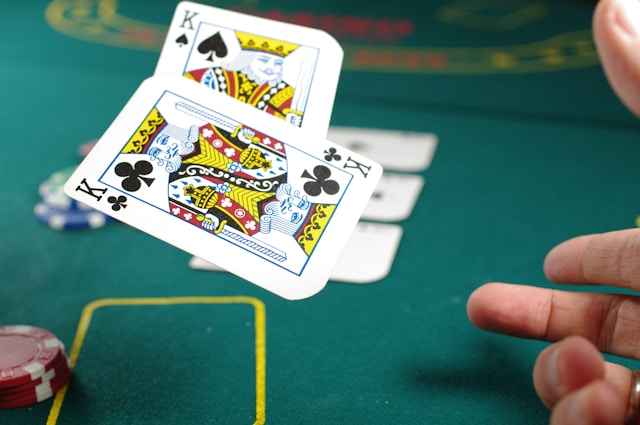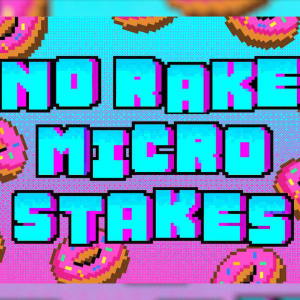There’s nothing quite like the sting of a cold deck or a cooler just as you’re finding your rhythm. One minute you’re deep in the zone. The next, you’re rage-firing chips into a reg you don’t even like.
We’ve all been there.
Tilt creeps in quietly, often disguised as aggression or some forced justification like, "I had to call there." Deep down, though, you knew as soon as you reloaded that stack you weren’t really playing poker anymore. You were just in sheer reaction mode.
Mental strength in poker isn’t optional. It's absolutely essential. Most players lose far more money to emotional decisions than to bad beats or genuine variance. And no, watching another solver video won’t fix it. What will help is building a few daily habits that make you naturally resistant to tilt.
Let’s talk about the practical stuff you can actually do, starting today, to stop losing to your own mind.
The Basics Still Matter
It might be boring advice, but it really does still matter, so don’t scroll down before reading about why the basics are so important.
You see, you can’t expect high performance if you’re running on five hours of sleep and last night's takeaway. Poker is a game of focus and emotional control. And if you're physically off, your mental game is going to suffer.
Sleep regulates your ability to process information and control emotion. Bad sleep makes your fuse shorter and your decision-making slower. Poor nutrition causes blood sugar crashes that leave you distracted and far more likely to tilt at the table. Energy drinks might feel like a quick fix, but they don't actually help you think clearly. And don’t get us started on the wasted calories.
If you're serious about becoming tilt-proof, you need a bit of structure. Not a rigid routine, just some consistency in your lifestyle that keeps your mental energy steady. Poker is already mentally taxing. You don’t need to make it harder by neglecting the basics.
Win the Mental Game First
Today, players have access to a whopping great range of incentives designed to boost their bankroll and extend their playtime. The latest bonus list offers some practical opportunities - from deposit matches to free spins and cashback deals, making it easier than ever to get more value for your money while playing.
But no matter how generous the bonuses are, the real key to long-term success lies not just in chasing promotions but in mastering your mental game. But if you’re mentally rattled, none of it matters. Poker is won through patience, clarity, and self-control.
Most players won’t take the time to build those muscles. They’ll keep blaming variance, chasing losses, and tilting away their bankroll in winnable spots. That is your edge.
If you show up calm, focused, and emotionally steady, you’ll be ahead before a single card hits the felt.
Form A Pre-Session Routine
Every elite performer (whether in sports or business) uses a pre-game routine. Poker players should be no different.
Take five minutes before each session to check in with yourself and maybe ask: Why am I playing right now? Am I actually focused, or just bored? What is my goal for this session?
It helps to remind yourself that success in a session is not just about finishing up. It’s about how well you stick to your process and mindset. If you want, you can add in some scientifically proven breathing exercises, quiet time, or a bit of visualisation. Just grounding yourself before you play can, for some, create calm that carries into your decisions.
Review Honestly
Reviewing your play is where mental game and strategy meet. But many of us will go a long way to defend our mistakes instead of learning from them.
If you want to improve your tilt resistance, start separating your decisions from the outcomes. A good play that doesn’t work out is still good. A terrible bluff that gets lucky is still bad.
Some pros keep what they call a “tilt log.” Every time they feel themselves getting agitated or emotionally charged, they write it down. Over time, this creates a pattern. You’ll notice you tilt when you lose an early flip, or when you bubble a satellite, or when someone slowrolls you. Knowing your triggers is half the battle. Once you’re aware, you can prepare for them before they derail your session.
Community Makes You Stronger
Who you talk poker with matters.
If your group chats are full of negativity, that stuff is going to wear you down. You need to be around players who talk about hand ranges and game theory, not just luck. Players who review spots and ask tough questions. People who keep you accountable and push you to be better.
The right poker community acts like a mirror. They’ll tell you when you’re playing badly, and more importantly, when you’re mentally off - and it can be invaluable.
Walk Away Before It’s Too Late
Sometimes, tilt doesn’t show up as a meltdown. Sometimes it shows up as boredom or apathy. Or staying on a table just because you "should" hit your target hands or hours.
One of the best ways to avoid tilt is to simply know when to quit. If your focus is gone, step away. Go outside, play a game, make a coffee. Do anything but stay in a game you’re not mentally equipped for. Respecting your limits makes you a more consistent player over time.
Build Joy Outside the Game
When poker becomes your only source of validation, swings feel Ten. Times. Worse. If you’re not winning, you feel like you're failing. That mindset makes you vulnerable to frustration, impulsive plays, and downright misery.
Create reward systems that have nothing to do with poker. Make time for other hobbies, exercise, cook something decent, and spend time with people who make you feel good.
Balance helps you maintain perspective when things aren’t going your way on the felt.


